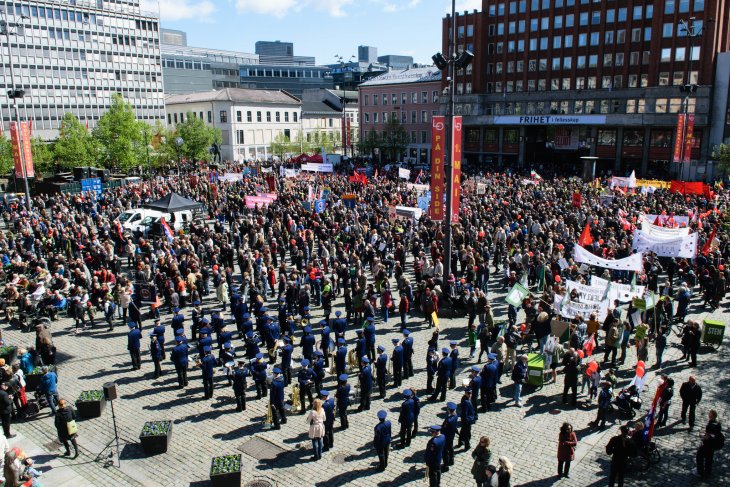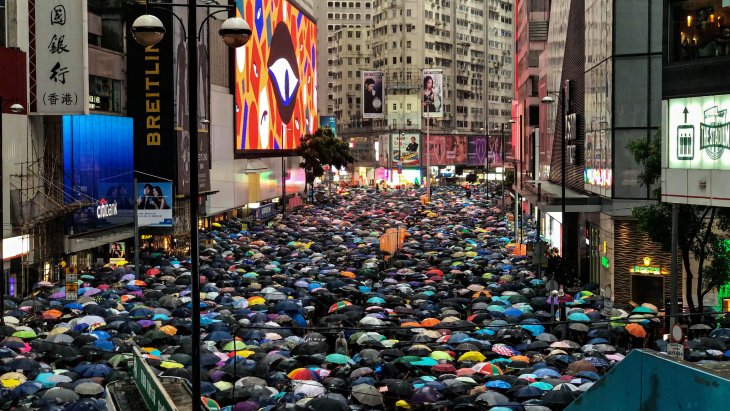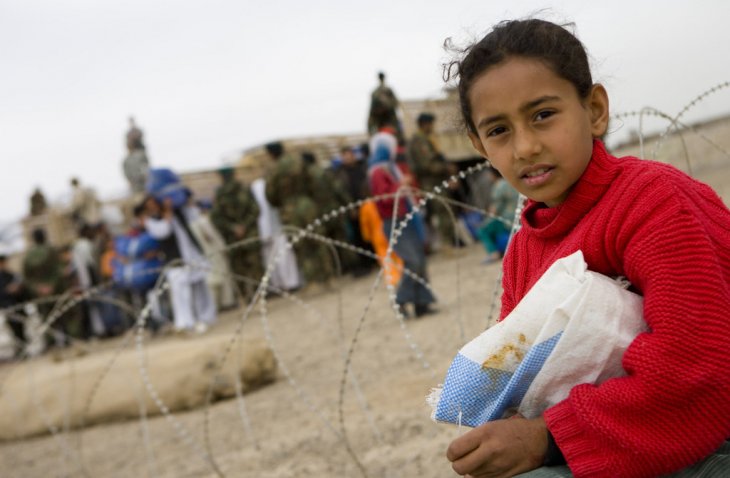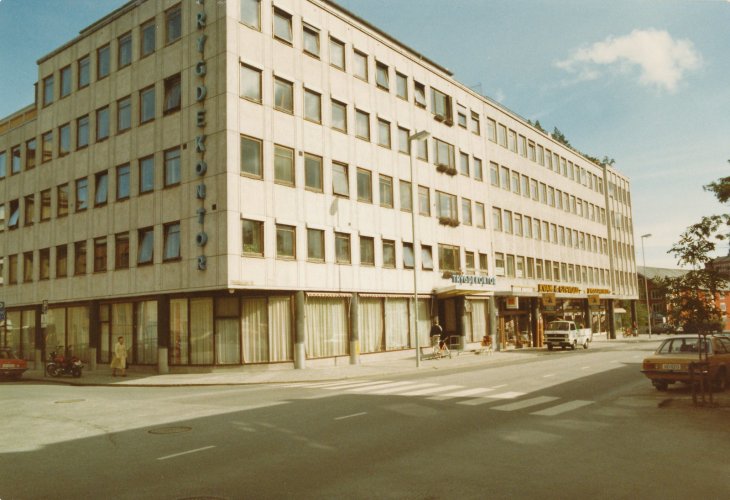Erik Rinde (1919–1994), a portrait written by Lars Even Andersen
The Norwegian version is available here (.pdf).
The Norwegian version is available here (.pdf).
How difficult should it be to obtain citizenship in Scandinavia? And are there differences in the attitudes of majority populations, immigrants, and their descendants, when it comes to this question? The first Scandinavian survey to look at these questions shows astonishingly small differences across countries and groups, despite polarization of both politics and debate in the region.

Hege CC BY via Flickr
We may be in the midst of the largest wave of nonviolent mass movements in world history. Social media has made mass protests easier to organize — but, perhaps paradoxically, harder to resolve. As these movements escalate more rapidly around the world, some common challenges may make it harder for them to succeed beyond winning short-term concessions. That’s especially true when they are leaderless or unorganized. Let’s look at why.

Photo: Studio Incendo via Flickr
When women are victims of violence and rape in civil war – which happens sadly often – the media jumps at it. When men are victims of the same atrocities, we hardly hear about it. On the other hand, male military leaders are often referred to in the media. However, when was the last time you listened to an interview with a female commander of an armed group? Female leaders and actors are nearly as invisible as are male victims of war. The consequences of these stereotypes are seen in disarmament, demobilization and reintegration processes – familiarly known as DDR processes.

Photo: Shoaib SR via Unsplash
Climate-related disasters are a major source of human and material losses. Poverty and low level of economic development are important determinants of environmental vulnerability. Achieving stable and sustainable development thus represents an important strategy to reduce adverse impacts of climate change. However, present efforts to evaluate possible consequences of climate change in the future suffer… Read more »
Can the conflict in Afghanistan be resolved politically, or must the war continue until one of the parties has won? The conflict in Afghanistan is now the world’s deadliest. The United States and the Taliban negotiated a peace agreement that never got signed. The recent exchange of prisoners may signal a restart of talks. Afghanistan is in desperate need of political solutions, but the path to peace is going to be winded and fraught with dilemmas.

A U.S. military helicopter flies in Afghanistan. Photo: The U.S. Army
The question of what constitutes the “good citizen” has received renewed interest in Western Europe in connection with increasing pressure on the welfare state, concerns over migration-related diversity, and growing anxiety about a crisis of democracy. In a recently published article, ‘The “good citizen”: asserting and contesting norms of participation and belonging in Oslo’, we draw on data from fifty in-depth interviews and six focus group discussions with residents of Oslo to study the impact of the normative public debate on citizenship on everyday perceptions of good citizenship.

A typical example of what some think of as “active citizenship”: making waffles for school fundraisers. Photo: Tresting via Flickr CC BY-SA 2.0

Photo: ResoluteSupportMedia / Flickr / CC BY 2.0
While localization is high on the agenda for humanitarian actors, at present, humanitarian governance does not support the localization agenda. To understand better why, we explore three issues underpinning humanitarian governance: the problem construction, consolidation and growth of the sector, and the sorting of civilians. We conclude that the localization agenda is important, but for it to succeed a fundamental change of the humanitarian system is needed.
Children are becoming the objects of a multitude of monitoring devices—what are the possible negative ramifications in low resource contexts and fragile settings?

The Norwegian Labour and Welfare Service, NAV, has been simultaneously complying with and breaking EEA rules. During 2015 and 2016, I gained detailed insight into how individual bureaucrats were handling exports of sickness benefits. I also heard stories about rules being applied inconsistently.

Trygdekontor in 1980 (the former name of NAV). Photo: Municipal Archives of Trondheim
A major social security scandal is currently unfolding in Norway. It is primarily a tragedy for the people who are affected, but also for the trust-based Norwegian welfare system. There are clear signs of a systemic failure, and many people are asking: How could this happen?
I’ve spent the past four years researching how NAV deals with users who live in more than one country. These users – known in the jargon as ‘transnationals’ – include people who export benefits out of Norway, as is the case with the victims of the social security scandal.
Following hours of conversations with case handlers working throughout what is known in NAV as the “international branch”, the scandal that is currently unfolding comes as no surprise.
I could not have envisaged the scale of the problem, but the fact that defects in the system resulted in inconsistent, unsatisfactory and erroneous case-handling corresponds well with my impression of the state of affairs.Read More